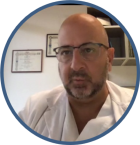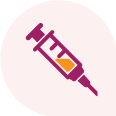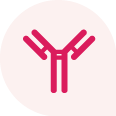PPTA is proud to be a Platinum Sponsor at the 40th International Symposium on Intensive Care & Emergency Medicine (ISICEM)
Speakers Discussing Albumin Use

Paolo Caraceni
Department of Medical and Surgical Sciences, and Center for Applied Biomedical Research, University of Bologna

Paolo Angeli
Internal Medicine and Hepatology Unit, Department of Medicine, Padova University Teaching Hospital

Jonathan Bannerd-Smith
Department of Intensive Care, Manchester Royal Infirmary, Central Manchester University Hospitals

Robert Hahn
Research Unit, Sodertalje Hospital, Sodertalje, Karolinska lnstitutet, Danderyds Hospital

Yasser Sakr
Department of Anesthesiology and Intensive Care Therapy, Jena University Hospital
SESSIONS: | THE PLACE OF ALBUMIN ADMINISTRATION; SEVERE LIVER DISEASE |
What is plasma?
Plasma is a key element of blood (55% of the total blood volume). Plasma is the clear straw-coloured liquid portion of blood that remains after red blood cells, white blood cells, platelets and other cellular components have been removed. Plasma carries water, salts, and proteins through the body.
More and more patients across the European Union are diagnosed every year with life-threatening plasma protein-related disorders.[1] This means certain proteins in their body are missing or are deficient. In many cases, plasma-derived medicinal products (PDMPs) are the only treatment option for these severe diseases.
Why is plasma important?
-

Patients across Europe rely on plasma-derived medicinal products (to treat a variety of rare and chronic and/or genetic diseases and serious, often life-threatening medical conditions).
-

For individuals with these conditions, plasma-derived medicinal products replace their missing or deficient proteins. Without these treatments, many patients would either not be able to survive or would have a substantially diminished quality of life and productivity.
-

Human plasma is the unique and indispensable starting material for the manufacturing of plasma-derived medicinal products.Every year, more plasma donations are needed to meet the growing clinical need for plasma-derived medicinal products.
-

It is worth noting that it takes more than 130 donations per year to treat a single patient with a primary immune deficiency.
Plasma-derivative therapies:
Therapy
Conditions Treated
Treatment Outcomes
|
The major plasma protein, regulating blood volume and providing many essential functions. |
|
|
| Protects tissues from enzymes of inflammatory cells. | Alpha-1 Antitrypsin Deficiency Genetic deficiency which may result in life-threatening lung disease in adults and/or liver disease in people of any age. |
|
|
A protein found in the fluid part of your blood. It controls a protein called C1, which is part of the complement system. This system is a group of proteins that move freely through your bloodstream. |
Hereditary angioedema Rare but potentially life-threatening condition characterized by acute attacks of usually non-itching edema (swelling) of the face, larynx (airway), abdomen and extremities. |
|
|
Essential for blood clotting, used to treat genetic bleeding disorders and surgical bleeding. |
Bleeding Disorders
Other rare coagulation disorders |
|
| Prevention and treatment of specific infections and certain conditions. |
|
|
|
Proteins used to neutralize foreign objects, such as bacteria and viruses, and regulate the immune system. Used as a therapy in primary and secondary immunodeficiencies and autoimmune disorders. |
Immunology-Immunodeficiencies
Neurology-Immune-mediated diseases Haematology Dermatology |
|
What is PPTA?
The Plasma Protein Therapeutics Association (PPTA) represents the private sector manufacturers of plasma-derived and recombinant analog therapies, collectively known as plasma protein therapies and the collectors of source plasma used for fractionation. These therapies are used by small patient populations worldwide to treat or prevent a variety of rare, genetic or acquired diseases and many serious medical conditions.
For more about PPTA, please visit www.pptaglobal.org.
PPTA Initiatives in Europe
- Vintura White Paper on "Key Economic and Value Considerations of Plasma-Derived Medicinal Products in Europe” Read it now: White Paper / Executive Summary
- PPTA European Parliament roundtable event “Europe’s need for more plasma - Before, during, after COVID-19” (December 9, 2020) Watch the event: Entire Roundtable / Roundtable highlights
- PPTA External Position Paper: “Europe needs to collect more plasma”
How can you help?
It’s easier than you think. #DonatePlasma. The good news is it’s in us all to save a life. If you consider more plasma should be collected across Europe, to meet the growing need of patients for PDMPs. If you want to ask policymakers to put in place the most appropriate EU or national policy frameworks leading to significantly increased plasma collection in Europe
Keynote Address by Commissioner Stella Kyriakides at the 2020 Global Plasma Summit (GPS)
“There is an urgent need to increase plasma collection across the EU and this requires cooperation and collaboration between public and private actors from plasma donors to patients.”
Copyright © 2021 Plasma Protein Therapeutics Association | Privacy Statement
 English
English  Deutsch
Deutsch  Français
Français  Italiano
Italiano  Español
Español  Português
Português  Polski
Polski  Български
Български  Czech (Čeština)
Czech (Čeština)  Magyar
Magyar  Nederlands
Nederlands  Română
Română